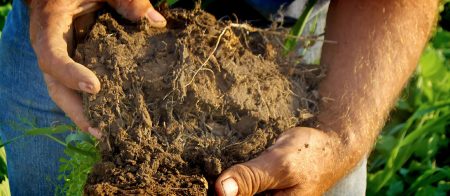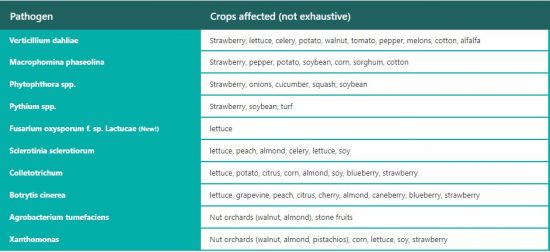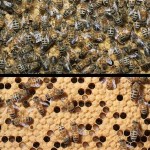July 13, 2017 – A San Francisco-based start-up, Trace Genomics, founded in 2015 has developed a test that gives farmers a comprehensive profile of the microbiology in soil samples to help farmers identify problems and provide guidance on improving crop yields. The Soil Microbial Health Initiative launched in March 2017 gives farmers the opportunity to send samples and have them tested. The company so far has tested more than 10,000 samples.
States co-founder Poornima Parameswaran, “we’ve done a lot of validation around the diseases that growers already know are affecting yield and quality of their produce.” This is helping farmers to understand the underlying flora within the soil that impacts what is grown. For Trace Genomics the sampling gives them a growing database of soil profiles that can be further analyzed to see larger agricultural challenges.
Parameswaran’s co-founder, Diane Wu, points out that identifying pathogenic microbes is critical to farmers. Wu and Parameswaran met in graduate school at Stanford University. Wu’s expertise is computational biology. Parameswaran is a molecular biologist.
In keeping with the locale of the company, much of the work being done to date is with farmers in California. Parameswaran identifies what crops are associated with the soil samples they receive: lettuce, strawberries, nuts, orchards, vineyards, corn, soybeans and wheat.
What do farmers want to know?
Farmers can see when one field on their property produces better results than another but they often don’t know why. Sampling the soil gives them answers they have never seen before. A good example occurred in the Salinas, California area, where samples from lettuce growers experiencing Fusarium wilt when analyzed yielded the first diagnostic test for the disease.
Trace Genomics tests look at the microbial content of soil extracting DNA samples which are then sequenced and analyzed. Farmers receive results within 2 to 3 weeks. In assembling soil profiles into a comprehensive database Wu and Parameswaran hope to not only identify pathogens but also microbes that improve crop growth. In the little over a year-and-a-half since the company was founded, Wu notes that initial customers have used the data to “evaluate techniques they’ve been using and see what’s changing the presence of diseases in soil.”
Trace Genomics offers three different reports.
- The Single Pathogen Report tests samples for 10 different pathogens with crop specificity. Among these is Fusarium, identified with lettuce growers in Salinas.
- The Pathogen Screen Report tests for yield-reducing pathogens before symptoms manifest looking for the same 10 microbes.
- The Soil Health Report looks for beneficial microbes and other ecological indicators of good soil health such as oxygen status, fungal and bacterial diversity, plant growth promoting bacteria, and other factors, and concludes by providing improvement strategies.
The table below gives a sample of the pathogens Trace Genomics currently screens for and some of the crops they impact.

















